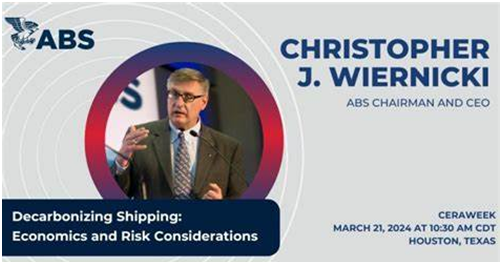
“We need to recognize that there is an intermediate step in the energy
transition,” he said. “Last year the conversations were focused on going from
oil to a green fuel economy. Today, we are seeing the emergence of the blue
economy that addresses carbon management, carbon capture, carbon pricing and
carbon credits and offsets, as an essential stepping-stone. The EU has recognized the importance of this intermediate economy with
Fuel EU Maritime, and I believe you will see a universal carbon tax emerging as
the IMO and the EU will synch together.”
“Commercial gravity alone will
not get us to Net Zero by 2050. We will need ambitious measures, both carrot
and stick. Fuel EU Maritime is one example, and a carbon tax is another. But a
global industry needs a global approach, which is why IMO regulations are
foundational for shipping. IMO has given us an investable roadmap with outcomes
and signposts along the way. It has also introduced the shift from tank to wake
to well to wake, which puts a completely new perspective on fuel choices when
looking at lifecycle emissions performance. Even though the IMO is being challenged by regional lawmakers,
everything really starts and stops with the IMO.”
“The next 10 years will determine what is desirable vs what is doable,”
said Wiernicki. “It is way too early to declare fuel winners. The fuel
technology readiness timeline will be incremental and go through a short game,
a mid-game and a long game. Pace and
speed will be driven by the boundary conditions of safety, fuel availability
and scalability of infrastructure and, more specifically, by the cost of the
electrolyzer and the cost of the carbon capture. We know these are the
technologies with transformational potential, along with electrification and
battery energy storage, green hydrogen and nuclear energy.”